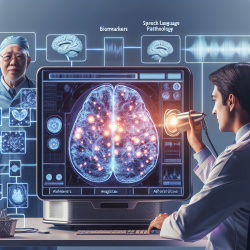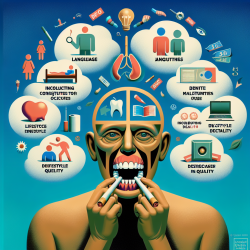Introduction
Alzheimer's Disease (AD) is a significant concern in modern healthcare, affecting millions worldwide. As the sixth leading cause of mortality in the US, early and accurate diagnosis is crucial for effective management and treatment. Recent advancements in deep learning (DL) offer promising avenues for improving AD diagnosis, particularly through the analysis of neuroimaging data.
Deep Learning in Alzheimer's Diagnosis
Deep learning techniques have shown superior accuracy in diagnosing AD compared to traditional machine learning models. The research article "Deep Learning-Based Diagnosis of Alzheimer’s Disease" reviews state-of-the-art DL techniques and their application in AD diagnosis. This study emphasizes the potential of DL in processing large-scale, high-dimensional neuroimaging data, which is critical for early detection and monitoring of AD progression.
Key Findings and Implications for Practitioners
The research highlights several key findings that can enhance the diagnostic capabilities of practitioners:
- Biomarkers: MRI, fMRI, PET, and other biomarkers are crucial for AD diagnosis. DL models can effectively integrate these biomarkers to improve diagnostic accuracy.
- DL Techniques: CNNs, RNNs, and hybrid models have demonstrated high accuracy in classifying AD stages. Practitioners can leverage these models to enhance diagnostic precision.
- Data Integration: Combining neuroimaging data with genetic and clinical assessments enhances the model's ability to predict AD progression.
- Challenges: Despite advancements, challenges such as overfitting, data quality, and interpretability remain. Practitioners must be aware of these limitations and continue to refine their approaches.
Encouraging Further Research
Practitioners are encouraged to explore DL techniques further, considering the potential for personalized medicine approaches in AD diagnosis. By integrating DL models into clinical practice, practitioners can contribute to the development of more effective diagnostic tools and treatment plans.
Conclusion
Deep learning offers a transformative approach to Alzheimer's diagnosis, with the potential to significantly improve early detection and patient outcomes. Practitioners should remain informed about the latest advancements in DL and consider incorporating these techniques into their diagnostic processes.
To read the original research paper, please follow this link: Deep Learning-Based Diagnosis of Alzheimer’s Disease.










